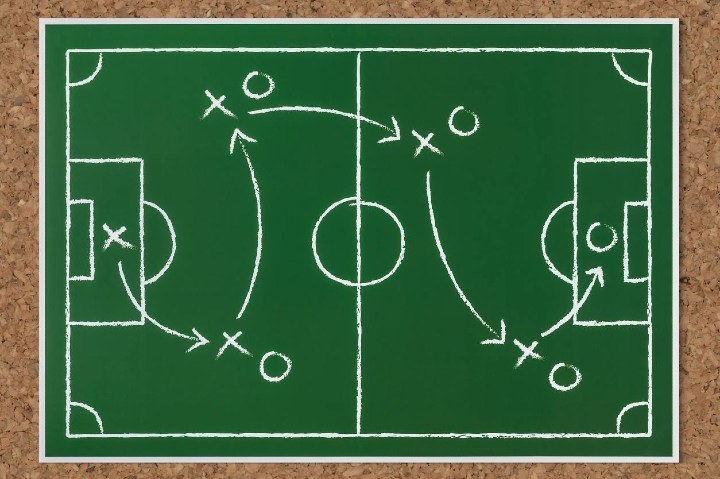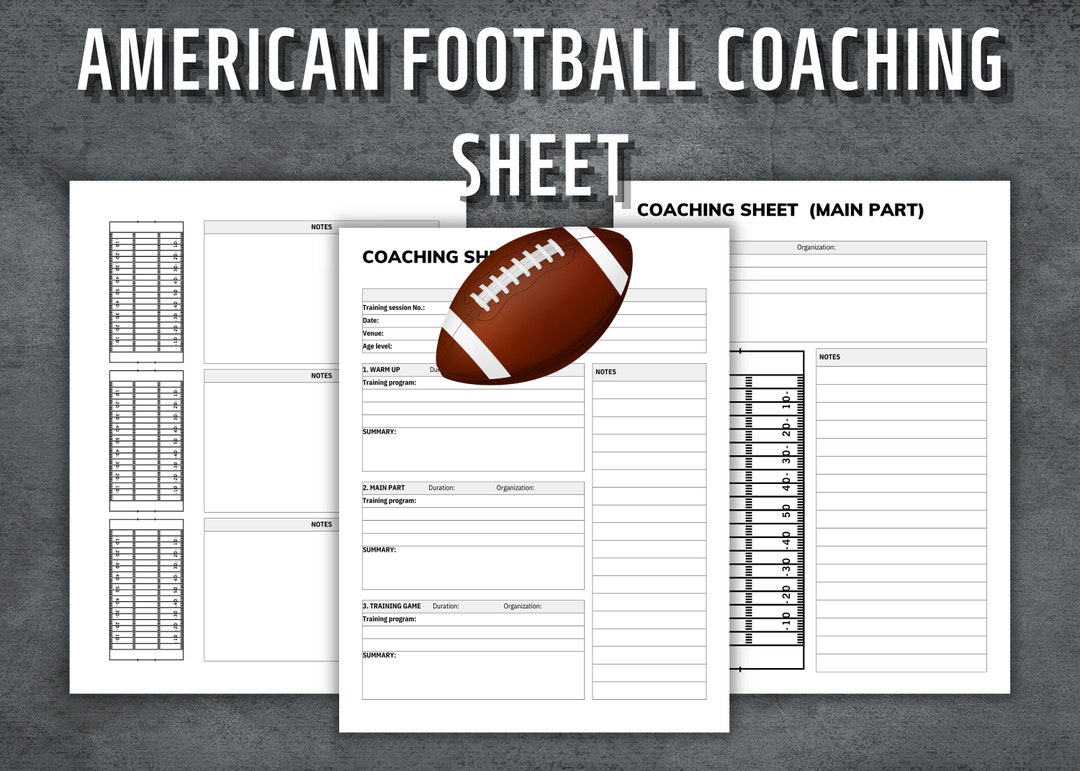“Football Coaching Strategies in France: A Deep Dive into Tactics, Philosophy, and Development
Related Articles Football Coaching Strategies in France: A Deep Dive into Tactics, Philosophy, and Development
Football Coaching Strategies in France: A Deep Dive into Tactics, Philosophy, and Development

France, a nation synonymous with footballing excellence, has consistently produced world-class players and teams that have left an indelible mark on the global stage. From the era of Michel Platini to the modern dominance of Kylian Mbappé, French football has been characterized by its unique blend of technical brilliance, tactical sophistication, and a deep-rooted passion for the beautiful game. Behind this success lies a well-defined coaching philosophy and a commitment to player development that has shaped the nation’s footballing identity.
Historical Overview of Coaching in France
The evolution of football coaching in France has been a gradual process, influenced by various factors, including the nation’s cultural values, its educational system, and the global trends in football tactics. In the early years, French football was largely amateur, and coaching was often informal, with experienced players taking on the role of mentors. However, as the game became more professionalized, the need for structured coaching emerged.
One of the pioneers of French coaching was Georges Bayrou, who introduced modern training methods and emphasized the importance of physical fitness. In the post-World War II era, coaches like Albert Batteux and Just Fontaine brought a more tactical approach to the game, focusing on team organization and strategic planning.
The 1980s marked a turning point for French football, with the emergence of a generation of talented players led by Michel Platini. Coaches like Michel Hidalgo and Henri Michel instilled a sense of national pride and implemented a more attacking style of play, which culminated in France’s victory at the 1984 European Championship.
In recent decades, French coaching has continued to evolve, with coaches like Aimé Jacquet, Didier Deschamps, and Zinedine Zidane achieving remarkable success at both the club and international levels. These coaches have embraced a more holistic approach to coaching, focusing not only on tactical and technical development but also on the psychological and social aspects of the game.
Key Coaching Philosophies in France
Several key coaching philosophies underpin the French approach to football:
- Emphasis on Technical Skill: French coaches place a strong emphasis on developing players’ technical skills, including passing, dribbling, shooting, and ball control. This focus on technical proficiency is evident in the elegant and fluid style of play that characterizes French football.
- Tactical Flexibility: French coaches are known for their tactical flexibility and their ability to adapt their strategies to suit different opponents and match situations. This adaptability is a key strength of French teams, allowing them to be competitive in various playing styles.
- Teamwork and Discipline: French coaches prioritize teamwork and discipline, instilling in their players a sense of collective responsibility and a commitment to following the game plan. This emphasis on teamwork is crucial for building a cohesive and successful team.
- Creativity and Flair: While emphasizing tactical discipline, French coaches also encourage creativity and flair in their players, allowing them to express their individual talents and make spontaneous decisions on the field. This balance between structure and freedom is a hallmark of French football.
- Psychological Resilience: French coaches recognize the importance of psychological resilience and mental toughness in football. They work to develop players’ confidence, motivation, and ability to cope with pressure, which are essential qualities for success at the highest level.

Tactical Approaches Commonly Used in France
French coaches have adopted various tactical approaches over the years, reflecting the evolving trends in global football. Some of the most commonly used tactics in France include:
- 4-3-3 Formation: The 4-3-3 formation is a popular choice among French coaches, providing a balance between attack and defense. This formation allows for fluid movement in the midfield and creates opportunities for wingers to exploit spaces behind the opposition’s defense.
- 4-2-3-1 Formation: The 4-2-3-1 formation is another widely used tactic in France, offering greater defensive stability while still providing attacking options. This formation typically features two holding midfielders who protect the backline and three attacking midfielders who support the lone striker.
- Possession-Based Football: French coaches often prioritize possession-based football, aiming to control the game by keeping the ball and dictating the tempo. This approach requires players to have excellent technical skills, tactical awareness, and the ability to make quick decisions under pressure.
- Counter-Attacking Football: While possession-based football is favored, French teams are also adept at counter-attacking football, exploiting the opposition’s defensive vulnerabilities with swift and incisive attacks. This approach requires players to have pace, agility, and the ability to transition quickly from defense to attack.
- High Pressing: In recent years, high pressing has become increasingly popular in French football, with teams aiming to win the ball back in the opposition’s half and create scoring opportunities. This approach requires players to be physically fit, tactically disciplined, and willing to work hard off the ball.
Player Development System in France
France boasts a well-structured player development system that is widely regarded as one of the best in the world. This system is designed to identify and nurture talented young players from a young age, providing them with the necessary training, education, and support to reach their full potential.
The French Football Federation (FFF) plays a crucial role in overseeing the player development system, setting standards for coaching, training, and competition. The FFF also operates a network of regional academies that provide specialized training for promising young players.
In addition to the FFF academies, many professional clubs in France have their own youth academies, which are often considered among the best in Europe. These academies provide young players with access to world-class facilities, experienced coaches, and competitive matches.
The French player development system emphasizes a holistic approach, focusing not only on technical and tactical development but also on the psychological, social, and educational aspects of the game. Young players are encouraged to develop their creativity, decision-making skills, and leadership qualities.
Examples of Successful French Coaches
France has produced numerous successful coaches who have made a significant impact on the world of football. Some notable examples include:
- Didier Deschamps: Deschamps is one of the most successful coaches in French football history, having led the national team to victory at the 2018 FIFA World Cup and the 2016 European Championship. He is known for his tactical acumen, leadership qualities, and ability to build a strong team spirit.
- Zinedine Zidane: Zidane is a legendary figure in French football, having won numerous titles as a player and a coach. He led Real Madrid to three consecutive UEFA Champions League titles, demonstrating his tactical brilliance and man-management skills.
- Arsène Wenger: Wenger is one of the most influential coaches in Premier League history, having transformed Arsenal into a modern and successful club. He is known for his innovative training methods, his emphasis on attacking football, and his ability to develop young players.
- Laurent Blanc: Blanc is a former French international who has enjoyed success as a coach, leading Bordeaux to the Ligue 1 title and Paris Saint-Germain to multiple domestic trophies. He is known for his tactical knowledge, his calm demeanor, and his ability to get the best out of his players.
- Rudi Garcia: Garcia is a highly respected coach in France, having led Lille to the Ligue 1 title and reached the semi-finals of the UEFA Champions League with Lyon. He is known for his attacking style of play, his tactical flexibility, and his ability to motivate his players.
Challenges and Future Trends
Despite its success, French football coaching faces several challenges, including:
- Maintaining Competitiveness: As the global football landscape becomes increasingly competitive, French coaches must continue to innovate and adapt to stay ahead of the curve.
- Developing Future Talent: Ensuring a steady stream of talented young players is crucial for the long-term success of French football.
- Promoting Diversity: Encouraging greater diversity among coaches and players is essential for creating a more inclusive and representative footballing culture.
- Adapting to Technological Advancements: Embracing new technologies, such as data analytics and performance tracking, can help French coaches improve their training methods and tactical strategies.
Looking ahead, several trends are likely to shape the future of football coaching in France:
- Increased Emphasis on Data Analytics: Data analytics is becoming increasingly important in football, providing coaches with valuable insights into player performance, team tactics, and opponent analysis.
- Greater Focus on Individualized Training: Tailoring training programs to meet the specific needs of individual players is becoming more common, allowing coaches to maximize each player’s potential.
- Integration of Sports Science: Sports science is playing an increasingly important role in football, helping coaches to optimize player fitness, prevent injuries, and improve performance.
- Emphasis on Mental Wellbeing: Recognizing the importance of mental wellbeing, coaches are increasingly focusing on developing players’ psychological resilience, emotional intelligence, and ability to cope with pressure.
- Collaboration and Knowledge Sharing: Encouraging collaboration and knowledge sharing among coaches can help to improve coaching standards and promote innovation.
Conclusion
Football coaching in France has a rich history and a bright future. By embracing a holistic approach to player development, emphasizing technical skill, tactical flexibility, and psychological resilience, and adapting to the evolving trends in global football, French coaches can continue to produce world-class players and teams that inspire fans around the world. As the game continues to evolve, French coaching will undoubtedly adapt and innovate, ensuring that France remains at the forefront of footballing excellence.

